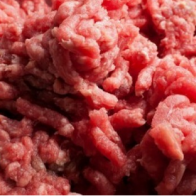
Another day, another story detailing the serious health risks of processed foods. 2011 will undoubtedly be remembered as the year that processed food became public health enemy number one. But with a struggling economy, stagnant wages becoming no wages, and food and beverage lobbyist attaining more power, Twinkie’s and Hawaiian Punch will stay in many American’s cupboards for the foreseeable future.
According to a recently released data, processed foods aren’t just bad for your abs and legs, but their addictive properties cause your brain to fall to pieces, much like a drug addict. Lab studies have found sugary drinks and fatty foods can produce addictive behavior in animals. Brain scans of obese people and compulsive eaters, meanwhile, reveal disturbances in brain reward circuits similar to those experienced by drug abusers.
“The data is so overwhelming the field has to accept it,” said Nora Volkow, director of the National Institute on Drug Abuse. “We are finding tremendous overlap between drugs in the brain and food in the brain.”
But let’s not go overboard. As with cigarette regulations in the 1990’s, antagonists will use and manipulate data for their causes, exaggerating the claims without providing context. For example, in order to increase profits, cigarette companies began lacing their products with highly addictive chemicals that had perverse effects on habitual consumers, which led to devastating health consequences. We are seeing the same behavior in food and beverage companies presently.
We also have to respect the consumers right to choose, whether it’s healthy or not. If we don’t, we’ll start legislating morality, which ultimately means a few people will make decisions for the majority. Hence we’ll have another endless, counterproductive war with same pretext as the wars on drugs, terrorism, and anything else that offends our sensibilities.

Business Weekly claims the cost of obesity related illnesses are reaching all-time highs relatively speaking:
The cost to society is enormous. A 2009 study of 900,000 people, published in The Lancet, found that moderate obesity reduces life expectancy by two to four years, while severe obesity shortens life expectancy by as much as 10 years. Obesity has been shown to boost the risk of heart disease, diabetes, some cancers, osteoarthritis, sleep apnea and stroke, according to the Centers for Disease Control and Prevention. The costs of treating illness associated with obesity were estimated at $147 billion in 2008, according to a 2009 study in Health Affairs.
Sugars and fats, of course, have always been present in the human diet and our bodies are programmed to crave them. What has changed is modern processing that creates food with concentrated levels of sugars, unhealthy fats and refined flour, without redeeming levels of fiber or nutrients, obesity experts said. Consumption of large quantities of those processed foods may be changing the way the brain is wired.
Even though there are examples of healthy “obese” people, unfortunately many are not. Painting a broad stroke of obesity with the Body Mass Index gives people false negatives that hurt the perception of healthy larger people more than it motivates unhealthy people to lose weight. Let’s all remember that most muscular people have high BMIs, so obesity is not as big a problem as processed foods and their addictive properites.







I trust you, Frugivore, but where is this data from?
@Tonja: Hi Tonja,
Thanks for reading this article,
Here is the hyperlink to specific data that links refined, processed sugar — the kind that you’ll find in processed food — and drug reward processes.
http://www.foodaddictionsummit.org/docs/Lenoir_Serre_Article.pdf
The overabundance and availability of processed food bothers me so much. It is addictive and although I do my best to avoid it, my grocery cart always ends up with something processed. They say stick to the edges of the store to avoid processed food, but when 80-90 percent of the grocery store is filled with boxes, bottles, bags, and cans of food, how is the average person supposed to avoid it all?
The evidence is around us. Kids and adults are look sick not fat but sick. My grandmother who eats out of garden looks younger than most of my peers, and I’m not even putting a lot on this statement.